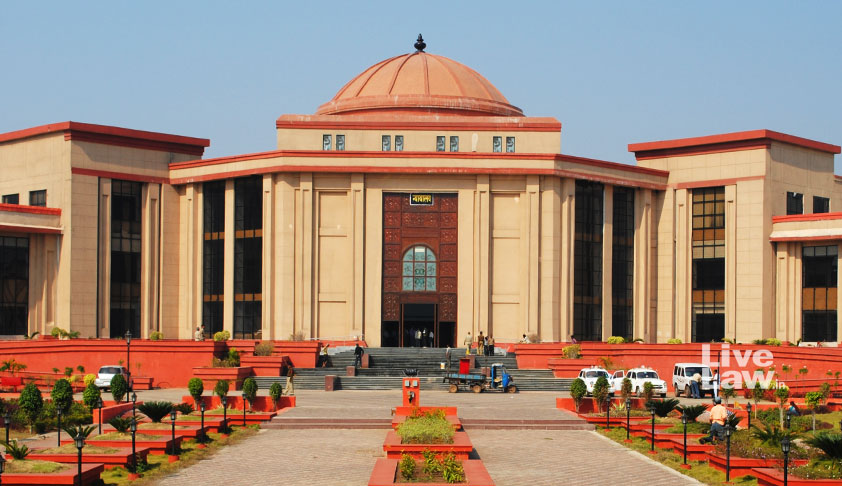 |
|
The Chhattisgarh High Court delivered a significant judgment in the case of Gorakhnath Sharma v. State of Chhattisgarh, acquitting a husband accused of committing unnatural sex with his wife. The court's decision hinges on a perceived conflict between Section 377 of the Indian Penal Code (IPC), which criminalizes unnatural offences, and Exception 2 to Section 375, which exempts sexual acts between a husband and wife (provided the wife is not under 18 years old) from the definition of rape. Justice Narendra Kumar Vyas, in his judgment, argued that the two sections are irreconcilable, creating a legal repugnancy. The case stemmed from an incident where the husband allegedly engaged in non-consensual anal sex with his wife, leading to her death. The trial court initially convicted the husband under Sections 377, 376 (rape), and 304 (culpable homicide not amounting to murder) of the IPC, sentencing him to 10 years of rigorous imprisonment.
The High Court's central argument rests on the interpretation of Exception 2 to Section 375. The court acknowledged that the Supreme Court, in Independent Thought v. Union of India, had amended this exception, raising the age of the wife from 15 to 18 years to align with the Protection of Children from Sexual Offences (POCSO) Act. However, the High Court's interpretation, while citing this amendment, seems to misinterpret its implications. The High Court reasoned that if sexual intercourse between a husband and wife is not considered rape (provided the wife is above the age of 18), then it would be illogical to prosecute the husband under Section 377 for any other form of sexual act with his wife. The judge highlighted the lack of a clear definition of the 'offender' in Section 377, contrasted with the clearer definition of 'man' in Section 375, and pointed to the commonality in body parts involved in sexual acts covered by both sections. This apparent ambiguity, in the court’s view, justifies the acquittal.
The High Court's reasoning, however, presents a potential flaw. The court appears to conflate the concept of consent with the legal framework. The Supreme Court’s ruling in Independent Thought v. Union of India did not abolish the need for consent; it simply removed the blanket immunity for husbands from prosecution for sexual acts with their wives under the age of 18. The issue at hand was not simply the act itself, but the alleged lack of consent from the victim. The High Court's judgment overlooks the critical element of non-consensual sexual acts, suggesting that any sexual act, even non-consensual, committed by a husband against his wife above the age of 18, would be exempted under Exception 2 of Section 375 and, consequently, under Section 377. This interpretation raises concerns about the protection of marital rights and the potential for the misuse of this legal loophole.
Further complicating the matter is the Supreme Court's partial decriminalization of consensual homosexual relations in Navtej Singh Johar v. Union of India, which struck down certain parts of Section 377. The High Court’s decision also comes in the context of the proposed Bharatiya Nyaya Sanhita (BNS), which aims to replace the current IPC, and notably lacks a provision directly equivalent to Section 377. This adds a layer of complexity, as the future of Section 377 remains uncertain under the proposed legal framework. The High Court’s judgment, however, stands as a current interpretation of existing laws, even if it raises questions about the balance between marital rights and the protection against non-consensual sexual acts within marriage.
The Chhattisgarh High Court's decision in Gorakhnath Sharma v. State of Chhattisgarh underscores the complex and often conflicting nature of the Indian legal system, particularly regarding matters of sexual offences and marital relationships. The judgment highlights the need for a comprehensive review and clarification of relevant IPC sections, specifically addressing the ambiguities surrounding consent within marriage and the applicability of Section 377 in such cases. The ruling itself might set a concerning precedent, potentially undermining the protection of women against non-consensual sexual acts within marital relationships. The Supreme Court might revisit this interpretation considering its own earlier judgments and ensuring consistency and protection within the current legal framework before the BNS comes into effect. The court’s interpretation of the amendments to Section 375 also raises questions regarding the effective implementation of the changed legal landscape, underscoring a need for robust judicial oversight and clarification to ensure the protection of victims while respecting marital rights.
The interplay between Sections 375 and 377 of the IPC demonstrates the challenges of balancing different legal principles and the need for clearer legislative language to avoid ambiguity and potential conflicts of interpretation. The case highlights the need for legal reforms to better address the complexities of marital rape and non-consensual sexual acts within marriage, ensuring the protection of vulnerable individuals while respecting the rights of all parties involved. The case serves as a reminder that the ongoing evolution of legal interpretations requires a careful consideration of all relevant precedents and a holistic understanding of the underlying societal values and concerns. The future course of the law, especially with the introduction of the BNS, will be critical in determining the extent to which the Chhattisgarh High Court's interpretation holds sway in shaping the landscape of marital sexual offenses in India.
